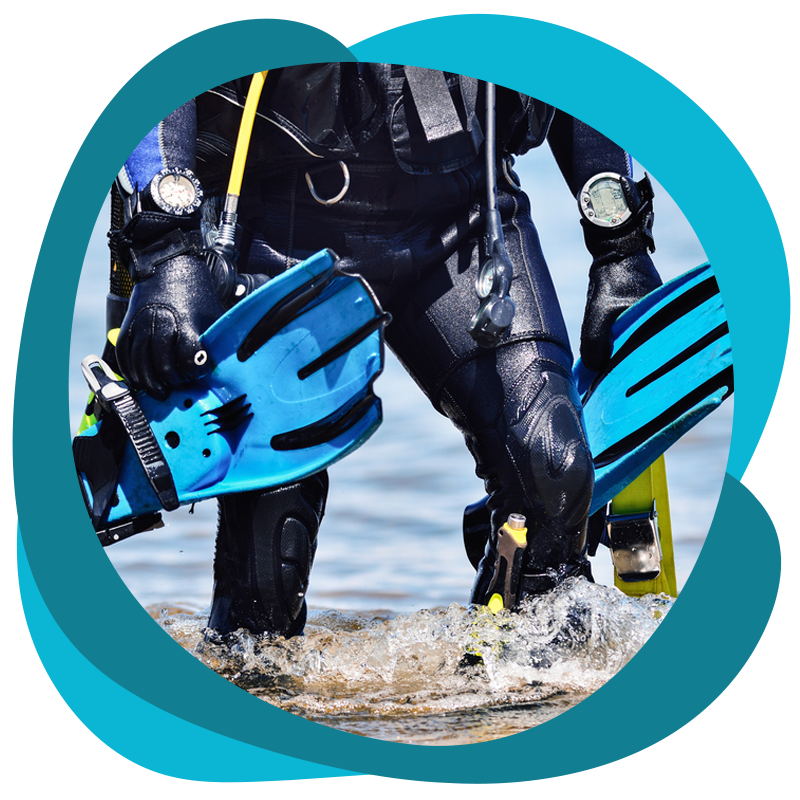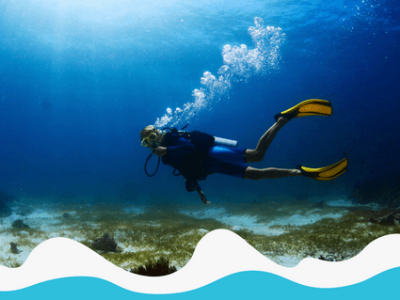Top Scuba Diving Safety Tips:
How To Dive Safely
Scuba divers have a unique chance to immerse themselves in a peaceful underwater world, where there are no stresses, no distractions other than the beautiful aquatic flora and fauna. There is, of course, an element of risk involved in scuba diving, but this can be mitigated by learning basic skills and taking the recommended safety precautions.
If you're new to scuba diving, it's a good idea to take a course with the Professional Association of Diving Instructors to learn the basics. Completing a PADI entry-level course means you’ll learn all of the skills you need for safe scuba diving.
Once you've mastered the art of breathing underwater, here are some top scuba diving water safety tips to help you stay safe while enjoying your underwater adventure.

Never Hold Your Breath
As any scuba instructor will tell you, this is the most crucial rule of diving – it could even save your life. Holding your breath underwater can lead to injury and possibly even death. This is because the air in the lungs contracts during descent into the water and expands during ascent.
While the diver breathes continuously, this isn't a problem, as any excess air escapes. But when the diver holds their breath, the air can't escape as it expands. This can cause a rupture in the lung walls, causing a serious injury known as pulmonary barotrauma.
In very serious cases, air bubbles can escape into the chest cavity and enter the bloodstream. This can lead to an arterial gas embolism that can be fatal. Even dives of just a few feet can cause this injury if the diver holds their breath. This is why it's absolutely crucial to keep breathing normally at all times when scuba diving.
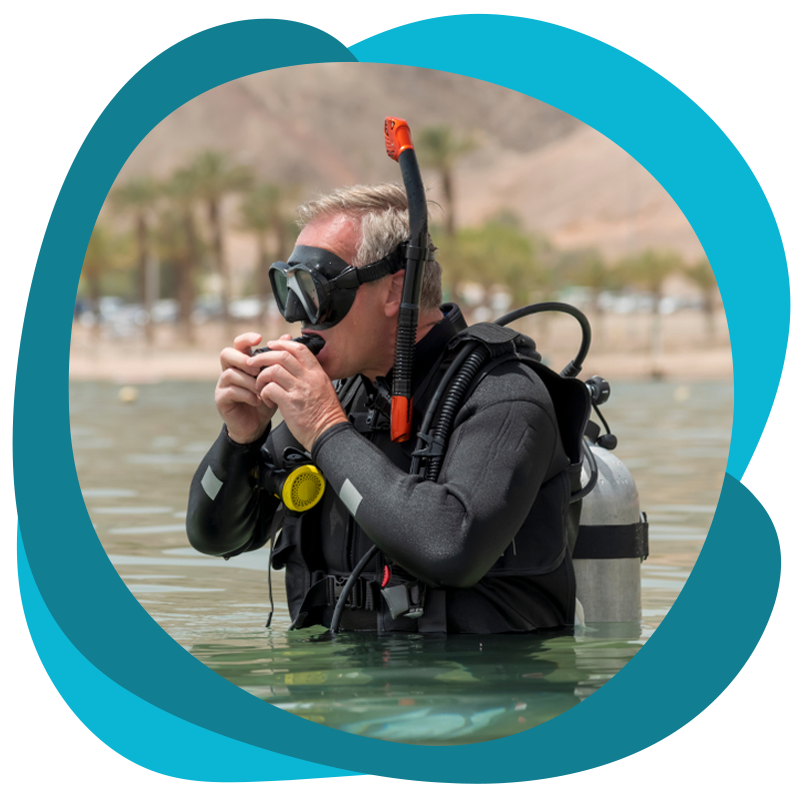

Don't Drink Alcohol
Drinking alcohol can inhibit our ability to scuba dive, including having a hangover. Drinking heavily the night before a dive can mean that you will likely still have alcohol in your bloodstream, which will slow your reaction time and cause poor coordination. This can be very dangerous underwater.
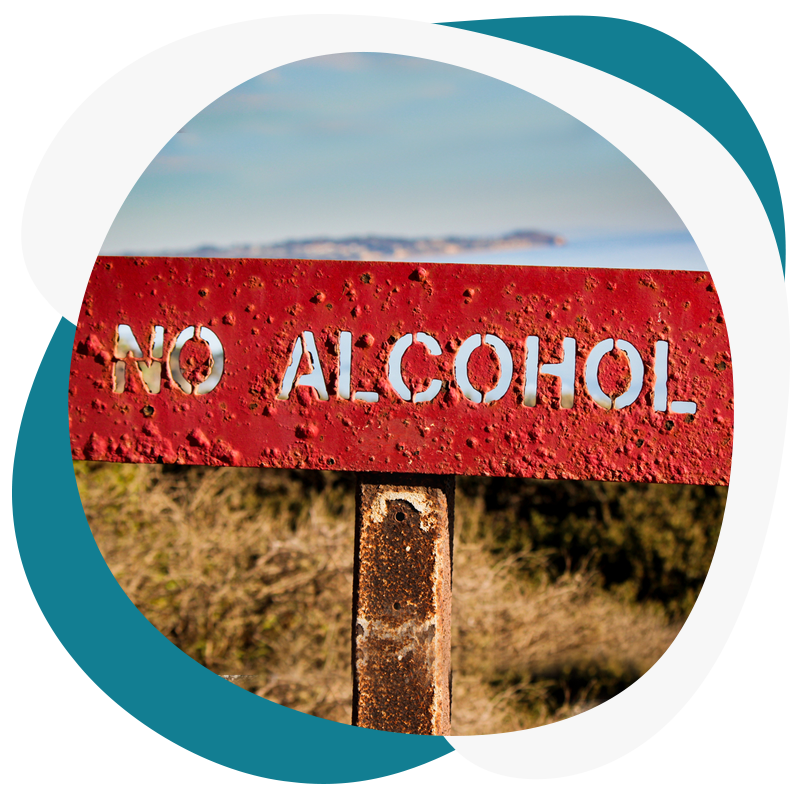
Carrying out multiple tasks simultaneously can become challenging, making it more difficult to clear your mask while controlling buoyancy. Alcohol intake also causes increased heat loss and a greater risk of hypothermia and dehydration.
The symptoms of alcohol consumption include a headache, nausea and poor coordination, which are also the symptoms of decompression sickness. If you do suffer this life-threatening illness while on a dive, being hungover could delay diagnosis.

Illnesses & Medication
Similarly, if you are under par due to an illness, you shouldn't dive – especially if you're taking prescription drugs. You might feel okay if you're taking medicine to alleviate the symptoms of a cold. However, if you start feeling congested while underwater, you could end up with a condition known as a "reverse block", which is caused by mucus preventing air bubbles in the middle ear, tissues or sinuses from escaping the body. This dangerous condition can cause serious damage to the eardrums.
If you're taking medicine for any illness or ongoing condition, it's safer to consult your doctor before going scuba diving. This includes post-op recovery and pregnancy. Even if you're in the early stages of pregnancy, little research has been done about the risk to an unborn baby caused by the pressure underwater. The American College of Obstetricians and Gynaecologists and the Divers' Alert Network advises against diving while pregnant.
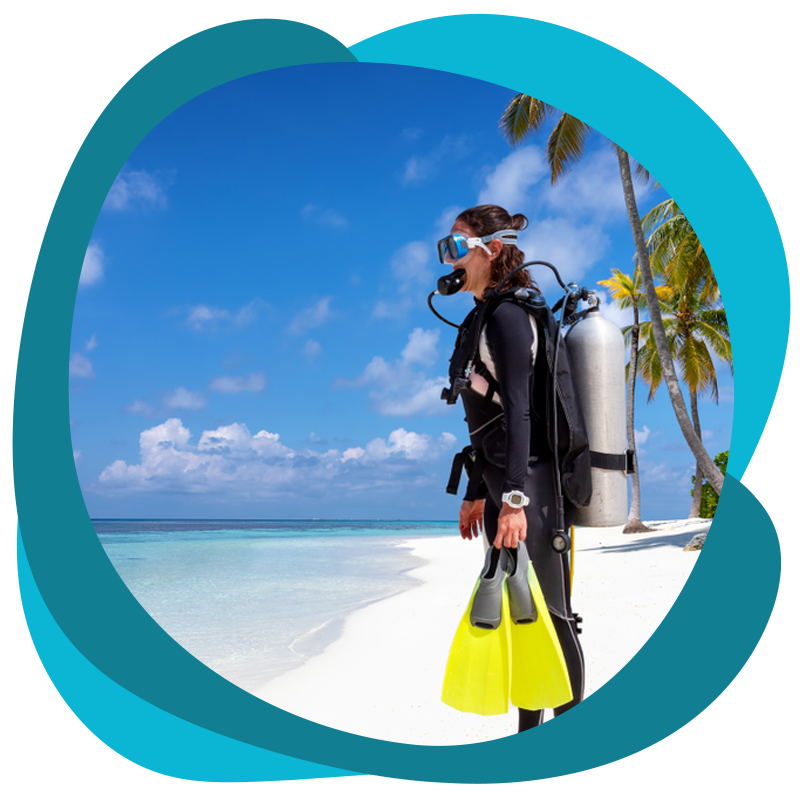

Use The Buddy System
Diving alone is discouraged, even if you're experienced. If something goes wrong underwater, the majority of emergency situations rely on the presence of a diving partner. For example, if your air source fails and you don't have an alternative, you have few options. In most cases, you would need to ascend rapidly, leading to serious health repercussions.

A study by the Divers' Alert Network and the British Sub-Aqua Club has revealed 86% of fatalities among scuba divers have occurred when the diver was alone. Not going diving with a buddy can be a very costly mistake. A diving partner really is your lifeline and underwater support system.
If you're on an organised dive and the guide pairs you with a stranger, get to know him or her before you start. Find out about their experience and training. Always err on the side of caution if you're not comfortable with the pairing. Your life may depend on it.

Plan Your Dive in Advance
Whether you're a beginner or an expert scuba diver, always plan your dive in advance and stick to the plan. This is one of the first rules of scuba diving safety. Before every trip, agree with your dive partner where you're going, the maximum depth to which you'll descend and how long you're planning to spend down there.
Decide on the air level when you’ll either begin your ascent or return to your entry point. Plan for a safety stop and for an ascent with enough air for both of you, in case you suffer an emergency where one of you runs out of air.
Always tell someone else where you're going and when you expect to be back so that they can raise the alarm if you don't turn up. Before setting off, find out where your nearest emergency room and hyperbaric chamber are, just in case you need them.


Wear The Correct Equipment
Your equipment must be a priority. It goes without saying that you need to wear the correct equipment. Make sure it's properly maintained and always carry out a pre-dive gear check. Your scuba equipment is quite literally a lifeline, so it must always be in top working condition.
Both you and your diving buddy should check all the equipment over thoroughly before your dive. If you don't have your own gear and you're renting, check it in the same way as you would your own. Most importantly, check that your buoyancy compensator device and regulators are in full working order.
Familiarise yourself with the position of vital features, including your integrated weight releases and dump valves. Take spares with you, such as O-rings and mask straps, in case they're needed. Bring a spare surface marker buoy if drift diving, and a spare torch if night diving.
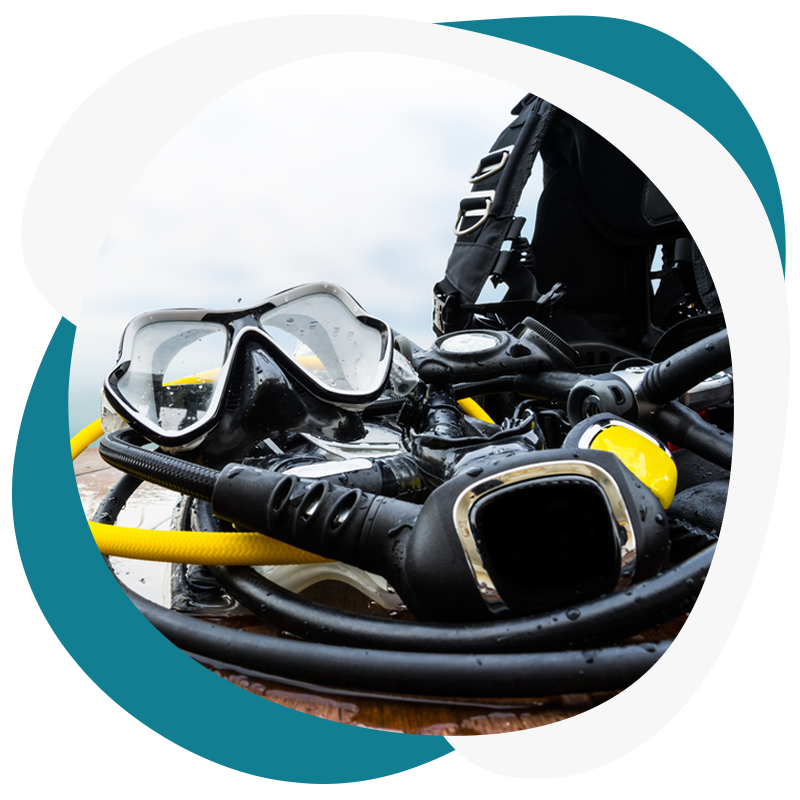
Equipment maintenance should be a regular ritual if you have your own gear. Whether you're boat diving or shore diving, or whether you're diving independently with a buddy, or with a professional guide, familiarise yourself with the location of the first aid kit and emergency oxygen.
Check out our scuba equipment essentials to find out everything you’ll need for a safe scuba.

Understand Your Gear
Safe scuba diving depends 100% on your equipment. Never be lazy or cut corners when it comes to gaining full knowledge of your gear. Even if you're a beginner and you're diving with a more experienced partner that you can rely on, you still need to familiarise yourself with how everything works.
If your buddy’s equipment was to malfunction, it could lead to a life-threatening situation for both of you. Having a thorough knowledge of the equipment could be crucial for your water safety if there's no one else around to ask. Statistics show the majority of equipment-related accidents happen because of the diver's uncertainty about how it works, rather than actual equipment failure.
Learn how to deploy your delayed surface marker buoy safely and exactly how your integrated weights release works. Find out where all the dump valves are on your buoyancy control devices. If night diving, it's worth taking a chemical light too, in case your main torch fails. Seriously, we can’t stress enough how important it is to have a thorough knowledge of how everything works.
